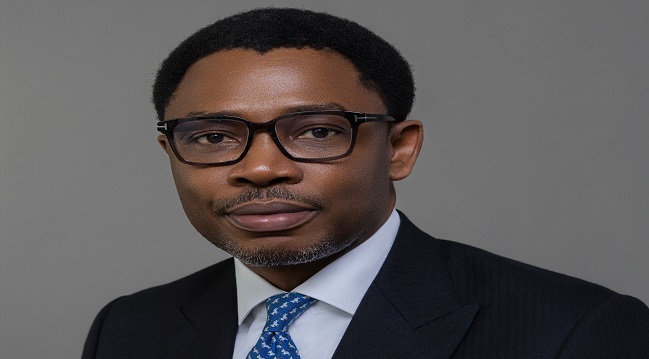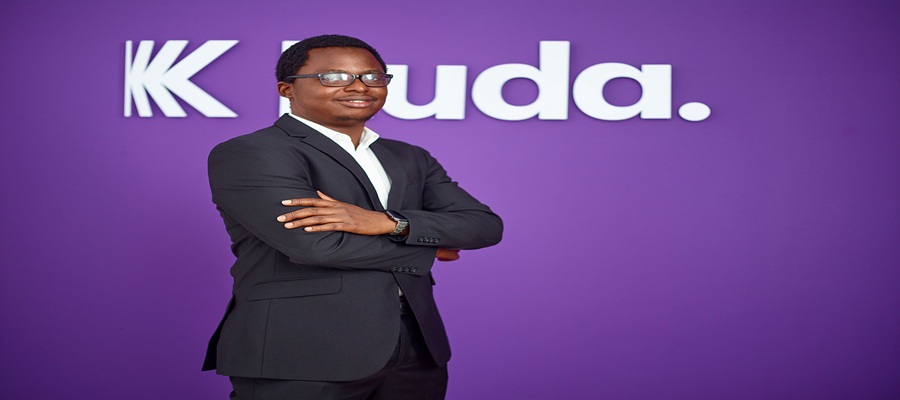E-Financial
Revealed! Who is Who on Bad Debtors Lists

Banks beginning to expose the businesses and people behind the mountain of debts threatening to kill the sector – courtesy of a Central Bank of Nigeria (CBN) directive that expired at the weekend, according to the Nation.
The publications are coming on the heels of the July 31, 2015 deadline set by the apex bank for the debtors to pay up.
The lists, an official of one of the banks said, is just a part of the whole.
“Some debtors have entered into various payment schemes to avoid being shamed by this exercise,” the bank official, who pleaded not to be identified because of “the sensitivity of the action”, said.
The Nation reported that the debtors are to be blacklisted and banned from participating in the foreign exchange market as well as trading in the Nigerian Government Securities market.
The publication of the debtors’ lists is to be a continuous exercise.
Union Bank is owed huge sums by 176 debtors. Six customers collectively owe the bank N27.91 billion. They are Dec Oil & Gas, owing N15.7 billion following a 1999 contract finance loan that expired in 2000. The directors of the company are Patrick Ugboma and Pius U. Malaka.
Other debtors include Alliance Energy, which is owing the bank N4.92 billion. The term loan approved in 2004 expired 2006. The directors are Akinwale Omoboriowo, Kojo Anan and Timi Austen-Peters.
Hajaig Construction is owing the bank N2.99 billion on a loan approved in 2012 and which expired in 2014. The directors are Abdul Nasser Hajaig, Rud Wan Hajaig and Mohammed Hajaig.
Sapta International Industries Limited is owing the bank N1.87 billion over a 1987 term loan that expired in 1988. The directors are Alex Aloy Nwokodikwa and Clement Nwokodikwa.
Petroleum Project International has a debt of N1.25 billion over a term loan obtained in 2004 that expired in 2007. The directors are Akinwale Omoboriowo, Kojo Anan and Timi Austen-Peters.
Best Aluminum owes N1.11 billion for import and lease facilities obtained between 2010 and 2012. The directors are Chief Godwin Nweke and Chief Pius Nweke.
Fidelity Bank’s debtors include the telephone firm Starcomms Limited, which owes N3.08 billion cumulatively in the three accounts it runs with the lender under the same name and directors.
The first account, which got in 2009 an overdraft which expired in 2014, is owing the bank N1.68 billion; the second account, a term loan approved in 2011 and which expired in 2014, is indebted to the tune of N1.16 billion.
The third account, also an overdraft approved in 2007 and expired 2014, is indebted up to N239.65 million. The directors are Chief Maan Lababidi, Paul Edwards, Tajudeen Dantata, Omar Lababidi, Dr. Chris Ogbechie and Olusola Oladokun.
Fidelity released a list of 28 customers with “delinquent” loans. Other customers include Kesio Associates, which is owing the bank N328.1 million and Diesel Solutions (N324.28 million). Patemglobal Limited is owing the bank N268.5 million.
Kasolute Nigeria Limited owes Sterling Bank Plc N475.3 million over an overdraft loan approved in 1999, which expired in 2000. Just Jays Limited owes the bank N254.7 million; Alcun Industries Limited owes N192.1 million. G.Cyrus Global Resources is owing the bank N187 million.
One bank executive told The Nation that many of the banks offered some debtors who made moves to settle “their long-outstanding loans the option of rescheduling, or making part-payment of the loans.
“Those that have reached this understanding with their banks have their names removed from the published debtors list, “ he said, adding that the other category whose names are missing from the list, are those that are contesting their indebtedness in the courts.
“The CBN has directed that all cases that are in the purview of the courts should be reserved for judicial determination and resolution,” the official said.
He said the Loan Recovery unit of the banks were still working hard, compiling the list of other debtors. “This publish and shame strategy would continue, as the next category of NPLs falls due, except otherwise directed by the regulator, he stressed,” the source said.
A CBN official, who spoke in confidence, said the resolve of the apex bank to adopt “the publish and shame” strategy was as a result of the failure of persuasion which many of the banks have adopted over the years. He warned that this would be the beginning of a long-battle aimed at recovering all outstanding loans due the lenders.
Some of the facilities in the bank books are classified as overdrafts, project financing, term loans and others which are said to be unauthorised credit advances. The NPLs range from one to over five years in many instances.
However, there are strong indications that much pressure is being mounted by some prominent debtors against the publication of the debtors’ list. The Nation learnt that about two to three banks have withdrawn the list they sent to some media houses for publication, saying they required more time to clean them up.
A banker, who craved anonymity, said he was concerned that the strategy that these debtors applied in the past to evade settlement of their debts might come to play again. He said many of the debtors were strong enough to offset their indebtedness, but regretted that lack of determination to apply the rules always favoured them.
A Lagos lawyer, Chief Ajibola Aribisala (SAN), told The Nation earlier that it would be an uphill task to get the true debtors’ list published, pointing out that even if a list is published, it would never be the authentic one.
E-Financial
FBNQuest Merchant Bank Rebrands as Quest Merchant Bank

FBNQuest Merchant Bank Limited has completed a change of name and will now operate as Quest Merchant Bank Limited, following the receipt of all required corporate and regulatory approvals.

The name change does not affect the Bank’s legal or going-concern status, management, or the nature of its business. Quest Merchant Bank Limited remains a duly licensed merchant bank, regulated by the Central Bank of Nigeria (CBN) and the Securities and Exchange Commission (SEC), and continues to deliver its full suite of merchant banking, advisory, and capital markets services to clients.
Commenting on the development, the Ag. Managing Director/CEO, Afolabi Olorode, stated: “This name change represents a pivotal milestone in the rich history of the Bank and a deliberate strategic repositioning that reflects our resilience, strong track record, and long-term growth ambitions. While our name has evolved, our commitment to our clients, stakeholders, and regulators remains unwavering.”
As part of the transition, the Bank is updating its branding, communications, and digital platforms to reflect the new name. During this period, some legacy references may remain visible across select touchpoints as updates are progressively completed.
All existing contracts, client relationships, and obligations of the Bank remain valid, binding, and fully enforceable following the name change.
E-Financial
UBA launches instant digital platform for seamless account opening across Africa, diaspora

United Bank for Africa (UBA) Plc, Africa’s leading financial institution, on Tuesday unveiled a groundbreaking instant account opening platform, revolutionising banking access for millions across the continent and diaspora communities worldwide.

UBA
The fully digital innovation, accessible at ubagroup.com, empowers prospective customers to complete account onboarding online in minutes, bypassing paperwork, branch visits, and lengthy processes that have long hindered financial inclusion. Supporting Naira and Diaspora accounts with multi-language options, the platform operates seamlessly on computers, tablets, and smartphones, catering to UBA’s diverse pan-African footprint spanning 20 countries, the UK, US, France, and UAE.
Shamsideen Fashola, Group Head of Retail and Digital Banking, described the launch as a pivotal step in democratising finance. “At UBA, we are committed to redefining the customer experience through innovation and simplicity,” Fashola said. “This fully digital solution underscores our belief that banking should be accessible, secure, and truly borderless.”
The seven-step process is intuitive: customers select “Open a Savings Account,” input their Bank Verification Number (BVN), undergo facial verification, confirm an OTP, update details, upload documents, add a digital signature, and receive an instant account number. This bridges traditional banking rigour with fintech speed, incorporating digital KYC while upholding stringent security.
Built with compliance at its core, the platform adheres to Nigeria’s Data Protection Act (NDPA) and Europe’s GDPR, safeguarding user privacy amid cross-border operations. Unlike conventional methods requiring physical biometrics, it enables immediate enrolment in UBA’s digital channels, blending convenience with regulatory depth.
Alero Ladipo, Group Head of Brand, Marketing, and Corporate Communications, highlighted customer-centric design. “Today’s customers expect speed, convenience, and compliance without compromise,” Ladipo stated. “We have blended industry-leading digital onboarding with robust standards for a seamless experience matching global best practices.”
The move reinforces UBA’s dominance in technology-driven inclusion, serving over 50 million customers with 30,000 employees and pioneering retail, commercial, and institutional services. Analysts view it as a strategic edge over fintech rivals, accelerating Africa’s digital economy amid rising diaspora remittances and intra-continental trade.
As Nigeria and Africa push financial digitisation, UBA’s platform positions the bank to capture untapped markets, fostering economic growth through barrier-free banking
E-Financial
Kuda MFB Secures National Microfinance Banking Licence, Sets Stage for Nationwide Growth

Kuda Microfinance Bank (Kuda MFB) has received a license from the Central Bank of Nigeria (CBN) to operate as a National Microfinance Bank, which means that it can now have a physical presence across Nigeria.

Musty Mustapha, MD/CEO of Kuda MFB
With the Unit Microfinance Bank licence it held until December 2025, Kuda MFB’s physical operations were limited to a specific location. The national licence removes those geographic restrictions, allowing the bank to open customer experience centres in multiple parts of the country. It also regularises Kuda MFB’s licensing status in line with the Central Bank’s framework for microfinance banks.
According to the bank, the national licence is about regulatory alignment and operational flexibility rather than a shift away from its digital-first model, so it will continue to lead with digital banking services, offering Nigerians the convenience of making transfers and payments, saving, and accessing instant credit through the Kuda app.
Musty Mustapha, MD/CEO of Kuda MFB, said, “Securing a national microfinance banking licence is an important step for us as a regulated institution. It strengthens our relationship with the Central Bank and affirms our commitment to operating at the highest standards of compliance as we scale. While we remain digital at our core, this licence gives us the flexibility to create more physical touchpoints where customers want in-person support or engagement, allowing us to serve Nigerians across the country in whichever ways are most convenient for them.”
Subject to regulatory approval, Kuda MFB plans to open more experience centres designed for customer support and community engagement, in the style of its existing experience centre in Yaba, Lagos, where customers and the general public can speak directly with the Kuda team to get help and learn about the microfinance bank’s products and services.
Kuda MFB’s national licence does not change its existing product offerings or transaction capabilities, but it provides the regulatory backing for a nationwide presence.

 Telecom2 days ago
Telecom2 days agoPolice Bust ₦7.7bn Telecom Hack Gang, Seize 400 Laptops in Massive Fraud Swoop

 E-Financial3 days ago
E-Financial3 days agoPayPal Goes Live in Nigeria through Paga

 Broadcasting3 days ago
Broadcasting3 days agoNITDA, NBC Explore Strategic Collaboration on Digital Transformation, Media Regulation

 General News2 days ago
General News2 days agoNaira Smashes Through ₦1,400 Barrier in Official FX Rally

 General News2 days ago
General News2 days agoNCC Slaps ₦250,000 Fee on Trial Licences to Spur Telecom Innovation

 General News3 days ago
General News3 days agoFacebook Powers Connection, Creativity at African Creators Summit 2026

 E-Business3 days ago
E-Business3 days agoGold Hits Record $5,110/Ounce Amid Trump Tariff Threats, Geopolitical Fears

 Telecom3 days ago
Telecom3 days agoTikTok, Instagram Blamed in US Youth Suicide Lawsuit















